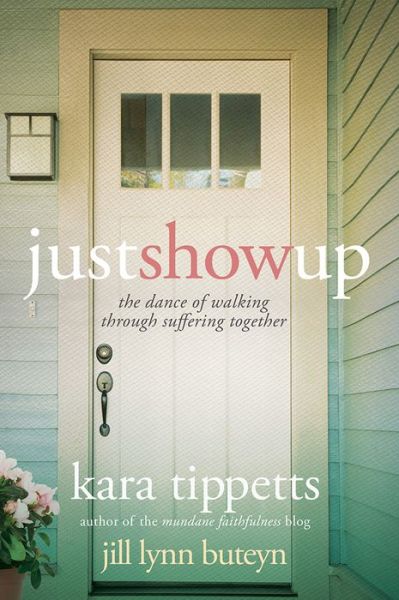What does it look like to be there for others without offering unsolicited advice?
This topic is very close to my heart, since my own story has involved crushing circumstances. More than once, I have received grace from people at times but have also been hurt when I have shared. I remember being told during an acutely agonizing season that You have the Lord! In other words, knowing Christ means that I have no reason or excuse to struggle or bleed or break: everything in my life should be tidy and in order, regardless of the pain my soul might know.
One day when I was down, someone said, Smile! The joy of the Lord… But I didn’t smile. My defenses immediately went up and any remote possibility of being vulnerable with that person was promptly dispatched. I don’t mean to say I had the right response, but that is how I reacted. I also once heard someone say that anyone in despair is failing to trust God’s word. When I heard that, I added one more person to my don’t-be-vulnerable-with-them list. Again, perhaps not the healthiest response on my part, but that was my hurting heart bristling with unsafety.
Some people always try to find a positive, even in the bleakest of their friends’ situations, in an attempt to make everything okay. Others dismiss the feelings of the one whose heart they just heard, since the emotions may not be rational and are certainly messy. I find that sometimes Christians very quickly give pat answers and platitudes to assuage the pain of the sufferer—or their own discomfort at facing it. Or perhaps, the “Christianese” comes out to avoid wrestling through hard questions with God.
I believe that how we respond to pain stems from our theology, what we believe of God. For that reason, we must know how God responds to pain, heartache, anguish and despair.
When I read the Psalms, I see people being gut-level honest with God. Often, that means painting a bleak picture and asking uncomfortable questions. These phrases could have come from my journal, but they don’t; they are Scripture: The darkness is my closest friend (Psalm 88:18), Has his unfailing love vanished forever? Has his promise failed for all time? (Psalm 77:8), I have suffered your terrors and am in despair. (Psalm 88:15b). These statements matter because they communicate loneliness, depression, despair, and huge questions of God. Yet the bleeding hearts that penned these feelings communicated them upward. They remained in communication with God, exposing the utter desperation within their hearts.
While many Psalms, even laments, end with a statement declaring trust in God and hope stemming from that, not every Psalm ends that way (Psalm 88, for example).These desperate pleas are significant because the Holy Spirit inspired the words. God himself sees value in our honesty with him, even when all we see is darkness. It takes great trust to expose our deepest fears and hardest questions to God. That kind of vulnerability only takes place in a safe and secure relationship. If God could only accept us when we trust perfectly, I, for one would be in deep trouble. I believe it takes a bigger God to embrace us in our honest desperation and despair, to still have us in his hand, even when we admit that we struggle to believe it. And he is that big, for that is what he does.
Knowing the gracious heart of God towards us in our lowest places sets us up to love others well in their hard. When we know that nothing can separate a child of God from his love for them, we can be a safe place for others in their pain without having to discard the discomfiting questions that spill from their hearts. Since pain and questions and struggle do not ruffle God, we do not need to eliminate those things from the discussion in order to love well. When all we offer God is our questioning and pain, he still extends love and grace, so we can do the same for others through Christ.
Perhaps one of the biggest barriers to just being there for someone without rushing forward with advice is the idea that we need to fix the problem, whatever it may be. Yet in offering advice without invitation, we can drive away the one who takes the risk of sharing their hard with us. The book of Job contains the heartcry of a suffering man as he experiences the added anguish of friends giving him empty, unsolicited words. As much as we would like to be, we are not the solution. Jesus is. And Jesus rarely resolves struggle immediately. He has purpose in the process. Perhaps the best thing we can do is to simply walk with them through it. Isn’t that what Jesus does? He promises in Isaiah to be with us through the flood and to be at our side in the fire. If Jesus simply promises the profound gift of his presence, why would we think we need to more, to have all the answers?
When I have the privilege of being there for someone, I try to do just that—be. I try to listen to what they say, and to hear what they don’t say. Sometimes, in my listening, I might reflect back with my words the silent sentiments of my friend, to give words to their unspoken feelings. In the last few years, after some of the hards I have walked through myself, I have become very careful to avoid applying a “Christian bandaid” to a suffering friend; I really do not have the answers, but I know Jesus does. I can love hurting friends by listening and by holding my tongue so that they feel safe to untangle the web of questions and emotions within their heart.
To be sure, there will be times to speak. The Holy Spirit can lead us in that. But if the person on my couch or in the cubicle next to mine or at my church does not ask for advice, sometimes the most profound thing I can say is I’m sorry. That is so hard.




